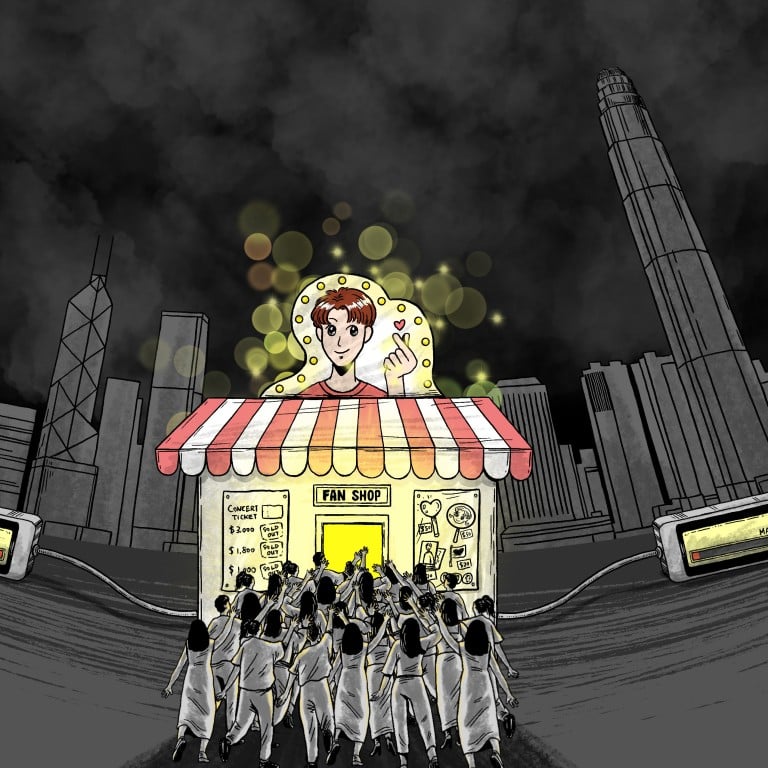
Is Hong Kong’s celebrity-driven ‘fan economy’ a game changer, or a bubble about to burst?
- Celebrities can get their fans to buy anything, but experts doubt impact on city’s efforts to bounce back
- Fans go to extremes proving their devotion, splashing out on products endorsed by idols
Freda Wong* was never a big fan of any celebrity until the day she watched Hong Kong Cantopop heartthrob Keung To perform on television in early 2020.
The Covid-19 pandemic had just begun to ravage the city and, listening to the singer from the 12-member boy band Mirror, the 51-year-old freelance community officer was simply blown away.
“Each of his songs carried a special message from his own emotion and experience – loneliness, the loss of a beloved, the struggle against preconceptions of youth, the frustrations of young people,” she recalled.
“His songs struck a chord in my heart with a healing effect. I found great relief in his songs, which motivate me to live a meaningful life no matter what.”
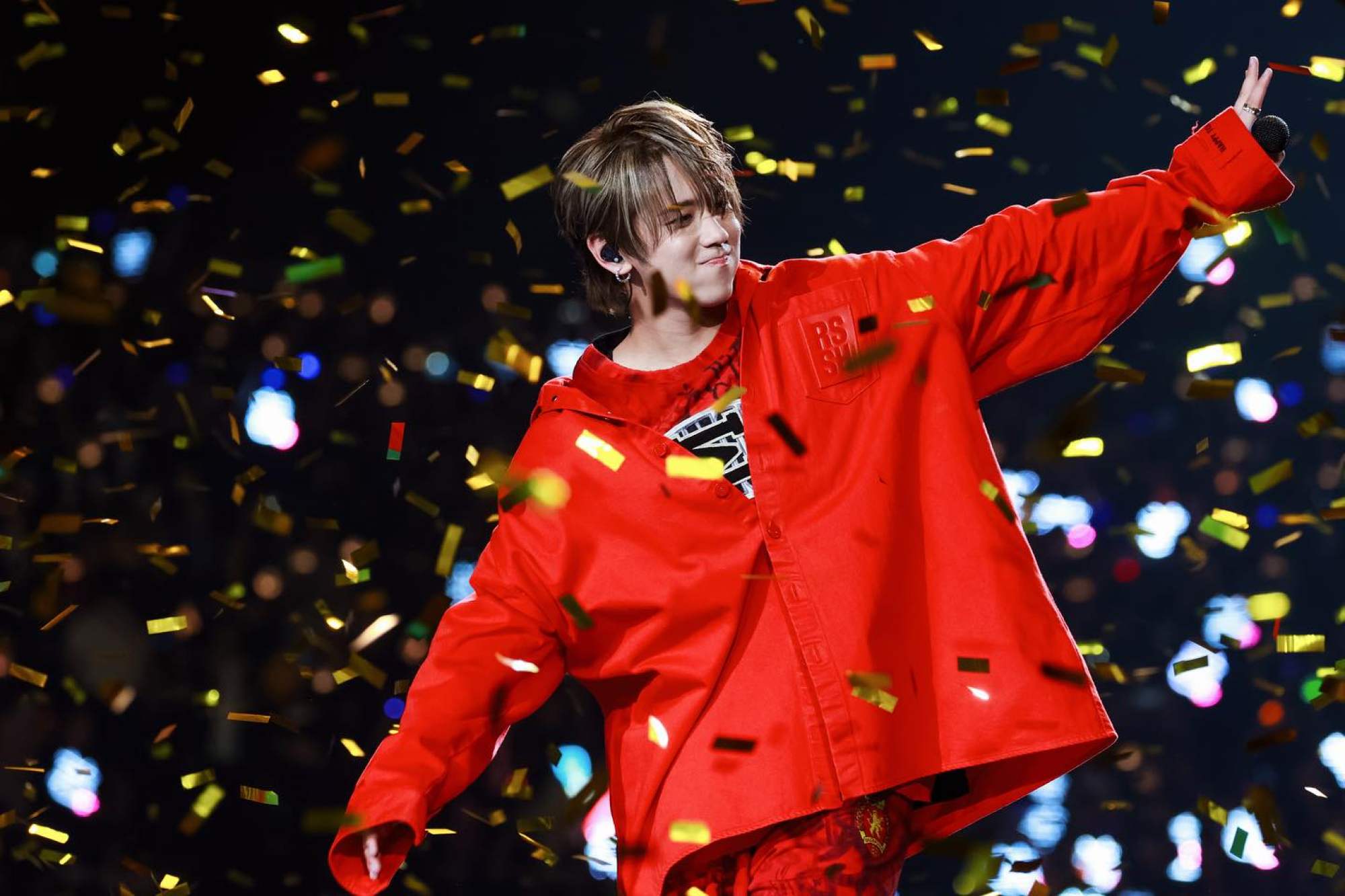
The single woman became such an ardent fan that she has not thought twice about spending large sums to show her devotion to Keung.
She has splashed out on concert tickets and products endorsed by her idol, attended fan activities and followed him to overseas performances and events.
In May, she spent more than HK$9,000 (US$1,150) on a four-day trip in Malaysia to watch Keung perform for just 15 minutes at a music festival.
Members of Hong Kong boy band Mirror to perform solo concerts this summer
Last month, she spent more than HK$8,000 travelling to Taipei for the three-day premiere of “My Heavenly City”, a movie starring Keung. The star was greeted by thousands of fans, many from Hong Kong.
Wong’s expenses included about HK$4,200 for a single movie premiere ticket in Taipei and Hong Kong and souvenirs, aside from what she spent on airfare, transport, hotel and food.
“I watched the movie three times in Taipei and I plan to watch it again and again in Hong Kong,” she said.
Stunned by the overwhelming response, film producer David Tang quipped that the Hong Kong star had turned Taipei’s vibrant shopping district Ximending into “Keungtoding”.
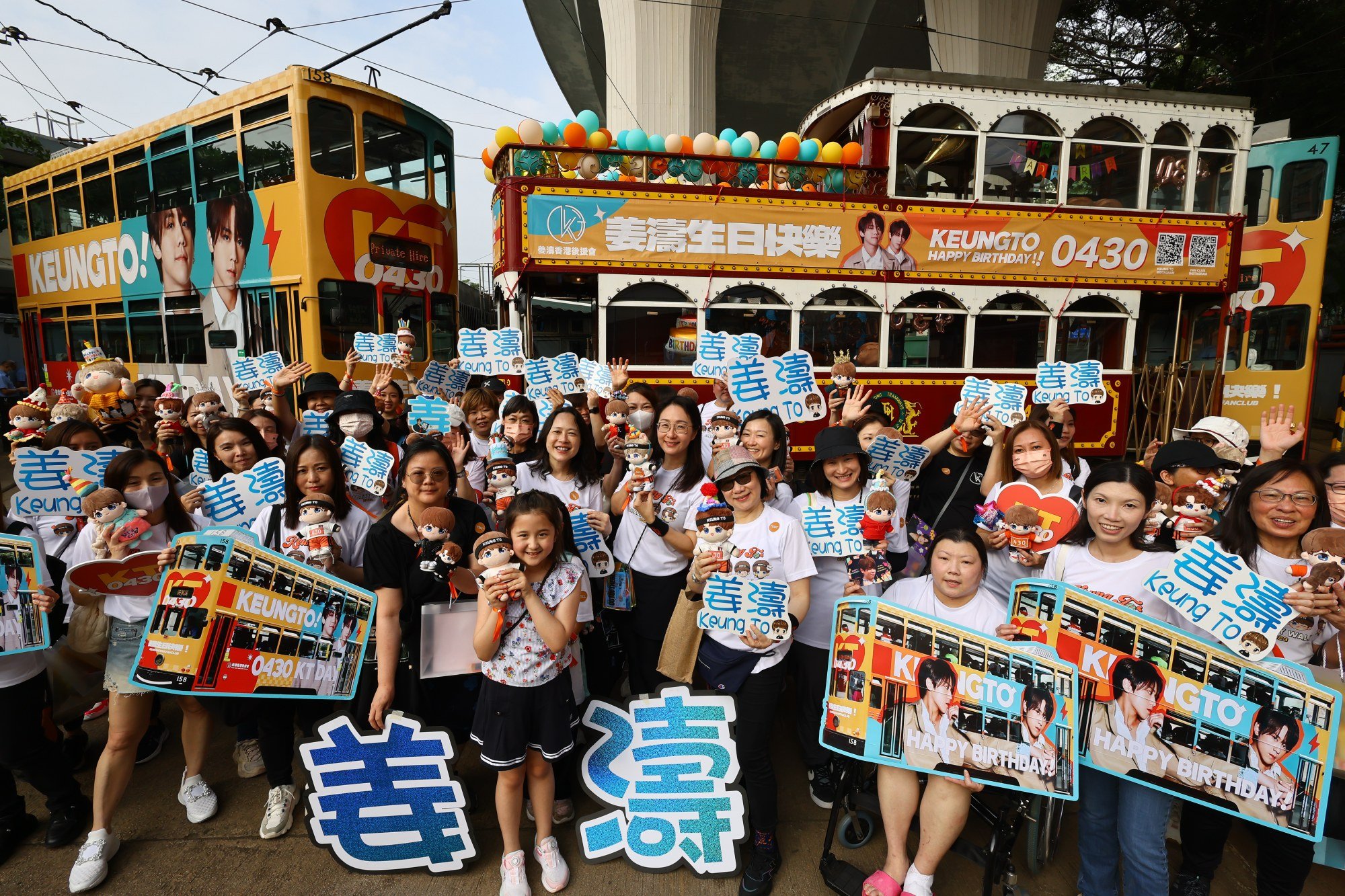
‘The results speak for themselves’
Mirror’s legion of fans in Hong Kong have never held back on showing their fervent support, including placing birthday advertisements in the city, sponsoring free tram or ferry rides on special occasions, stocking up on products endorsed by the band boys, or raising money for charity on behalf of the stars.
The phenomenon has sparked talk of a “fan economy” and its impact on the city’s ongoing efforts to bounce back from the pandemic.
Hype, celebrities and talk of easy money: a look behind Hong Kong’s JPEX scandal
A host of other celebrities have gained prominence endorsing products, and advertisers who have chosen singers, actors and “key opinion leaders” (KOLs) to front their marketing campaigns say the response speaks for itself.
According to advertising monitoring company admanGO, more celebrities were engaged to endorse products in the first eight months of this year compared with last year, and the number of brand posts on Instagram have almost doubled.
Among those who pumped the most ad dollars into celebrity endorsements were cosmetics firm Shiseido and insurer FWD, who both chose Mirror band boys for their campaigns, and fashion house Chanel, which engaged more than 200 influencers to promote its products.

Actress Grace Chan, Mirror members Edan Lui and Anson Lo emerged as the three most sought-after brand endorsers for their strong fan base of trendy young people. Actress Elva Ni was fourth, ahead of Keung To.
“The popularity and familiarity of the celebrity can easily help drive product and service sales. The fan clubs also help the sales of certain products,” said Jennifer Ma, a director at admanGo.
Can Hong Kong boy band Mirror win back disappointed fans?
But she said celebrity endorsements might have a downside, as the private lives of the stars could affect their brand image, and using the same celebrity to front different brands could also backfire.
“It can be confusing for consumers when the same celebrity becomes the spokesperson for many different brands,” she said. “Brands that use a celebrity exclusively over a longer period help to make the advertising effect last longer.”
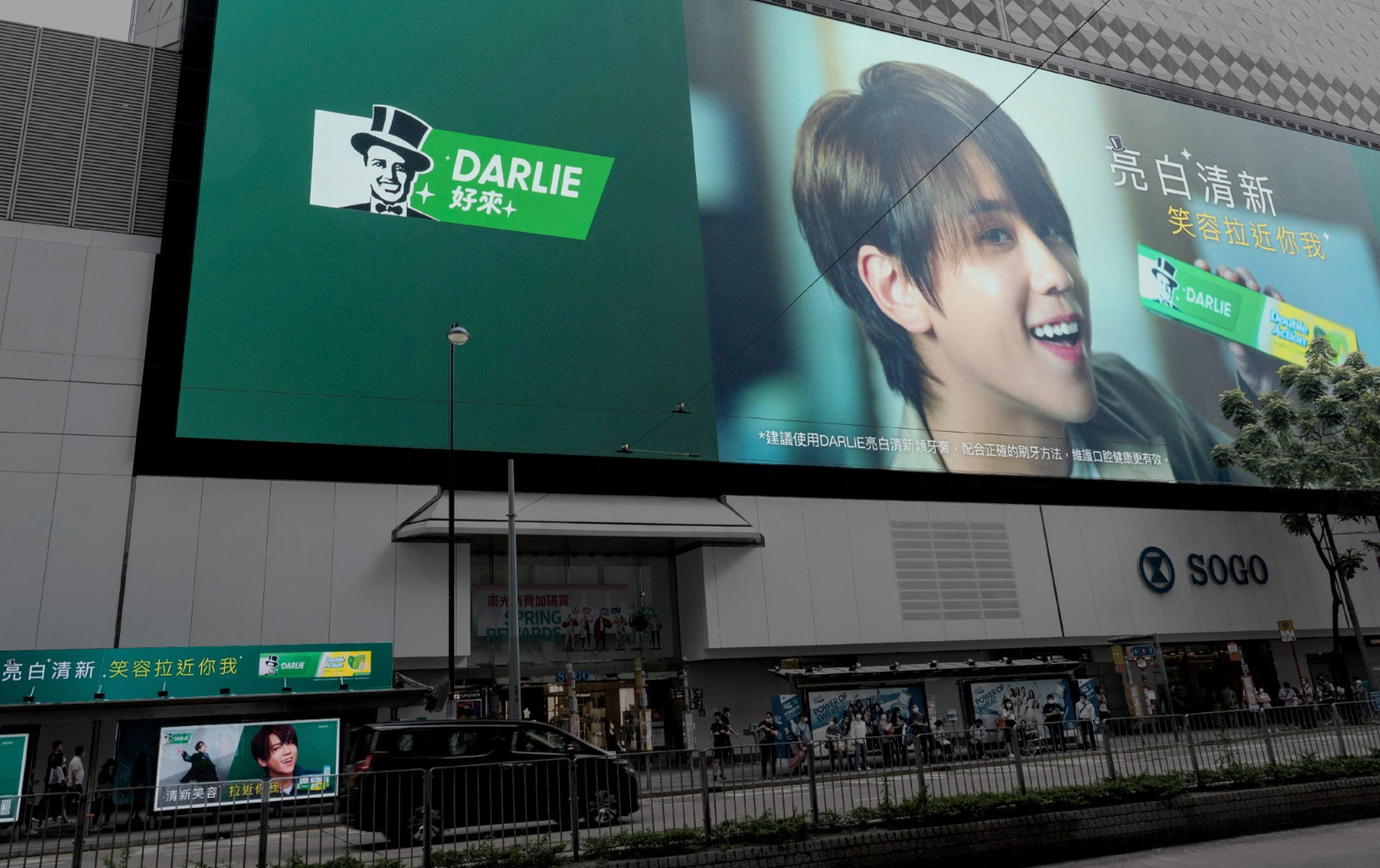
Companies that have used celebrities and those who have benefited from fan power said they were happy with the impact created by such personalities.
Hong Kong Tramways said it earned HK$1 million every time fans sponsored a free ride day, such as the one on Keung To’s birthday on April 30.
That proved so popular that other firms followed suit and the tram operator had 12 free ride days last year. It said the sponsorships turned out to be an important additional source of income.
Darlie Hong Kong, which chose Keung To for its toothpaste ad campaign early last year, reported improved sales and brand awareness.
Satisfied with the results, Jeff Cheng, the company’s head of marketing, said: “We also hoped to capitalise on his popularity to re-energise our brand image and attract younger customers.”
Hong Kong fans snap up 14,000 free tickets in minutes for Harbour Chill Carnival
HSBC bank, which featured Keung in an ad campaign targeting younger people in 2021, said the number of customers aged 18 to 34 grew that year and millennials accounted for more than half of new customers for the service endorsed by the star.
Delivery platform Deliveroo used Mirror member Anson Lo for a two-part campaign in which the star designed exclusive accessories such as straws and coasters.
A spokesman said: “Both were well-received by his fans and we had more than 50 items of media coverage, enhancing our brand presence in the market.”
He said the company would continue to explore collaborations with different artists in Hong Kong.
Are celebrity endorsements waning?
The trend of celebrity endorsements has its doubters, who do not believe the “fan economy” has any real, lasting effect on Hong Kong’s wider market.
Tsang Kam-keung, CEO of advertising group The Bees, believes the trend has begun declining and even Mirror’s best days as product endorsers might be over.
Mirror came to prominence after winning a talent competition in 2018, attracting thousands of fans from children and teenagers to women in their sixties.
Endorsement deals poured in and in 2021 alone, the band promoted no fewer than 180 brands for everything from banks to telecommunications companies, supermarkets, fast food and human papillomavirus (HPV) vaccines.
So long, So Ching: girlfriend of injured Hong Kong dancer quits band over trauma
Then tragedy struck during a concert in July last year, when a giant LED screen fell and struck two dancers, leaving one seriously injured.
Tsang said: “The Mirror effect peaked in mid-2022 just before the horrific incident at the Hong Kong Coliseum. Since then, it has been shrinking.
“Some advertisers have told me that the impact of their celebrity endorsement has been falling as sales have not improved. The number of their endorsement deals has also dropped.”
Tsang also noted that celebrity endorsements have become more diverse with advertisers using different stars and KOLs instead of focusing on Mirror members.
“The eruption of the Mirror phenomenon may have been due to the pandemic when people were forced to stay in Hong Kong. Fans’ enthusiasm may easily cool when the city resumes normality,” he said.
Vera Yuen Wing-han, a political economy lecturer at the University of Hong Kong, said the “fan economy” was a minority economic activity without any real impact.
“The city’s fan economy can only achieve growth when the overall economy is vibrant, not vice versa. When the economy is bad, fans will naturally tighten their purse strings,” she said.
Agreeing that Mirror’s best days as product endorsers might be over, she said Hong Kong stars needed to improve their international appeal to increase their economic value and impact.
She said South Korean girl group Blackpink and boy band BTS were examples of acts that had become huge across borders. Mirror, on the other hand, was not even popular in mainland China.
“Without an international reputation, they can’t even act as an ambassador to promote tourism or attract overseas visitors to Hong Kong,” Yuen noted.
Thousands gather for Hong Kong star’s birthday, but expert warns of Covid-19 risks
Associate Professor Billy Mak Sui-choi, of Baptist University’s department of accountancy, economics and finance, also did not think Hong Kong’s fan power could boost the overall economy.
“The cake is only this big,” he said. “When one firm gets a bigger market share by using a celebrity endorser, other firms in the same industry will get a smaller share.
“Celebrity endorsements won’t make the pie bigger. Only when artists extend their fan base to Asia will the market get bigger.”
Lawmaker Andrew Lam Siu-lo said the government could make use of a diverse range of idols in different sectors to boost the development of a specific industry or to target different markets.
“The celebrity endorsement does not need to focus on the entertainment industry. It can be sector-specific. For example, a sports idol can be hired to promote the sports industry. We don’t have to focus on Cantopop stars for celebrity endorsements,” he said.
“We have a lot of celebrities who enjoy high popularity on the mainland. The government can make use of them to attract mainland tourists or investors. The government should target the market audiences before formulating a targeted strategy to attract business and capital.”
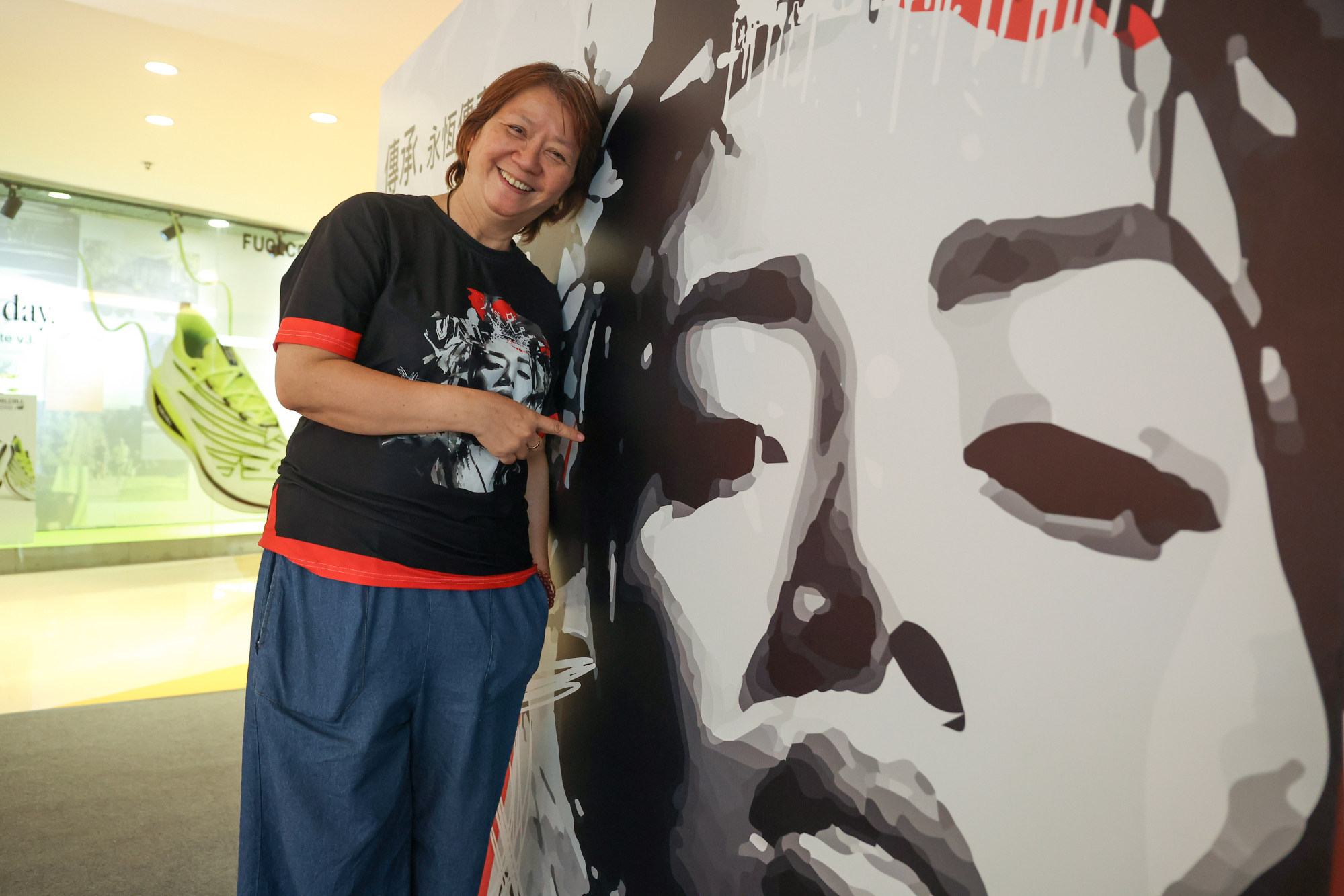
Some fans’ devotion never dies
Long before anyone was discussing influencers and rich endorsements for celebrities, accountant Eva Ng Wai-han was a devoted fan of Cantopop diva and actress Anita Mui Yim-fong who was 40 when she died from cancer in 2003.
Ng, 60, was among those who set up the 1,000-strong Mui Nation fan club in 2007 and is now its vice-chairwoman.
Fan power enabled the club to roll out numerous projects over the years, including installing a two-metre bronze statue of Mui in Hong Kong’s Avenue of Stars along the Tsim Sha Tsui harbourfront.
The group raised more than HK$5 million to produce a movie called Shi Fang in 2019, based on fans’ recollections of Mui. This month, it is holding a film festival of Mui’s films, with 26 screenings at Mong Kok’s Moko Cinema until October 25.
To mark the 20th anniversary of the star’s death on December 30, the club will hold an orchestra performance of Mui’s songs at Polytechnic University.
“All these have not been easy for us. Throughout the years we have raised more than HK$10 million and I have had to dish out my own money to pay for many expenses,” Ng said.
Despite spending more than HK$1 million of her own money on club activities, she said she had no regrets.
“I’ve spent all my savings on the fan club’s projects and that’s why I’ve remained single,” she said with a chuckle. “But I am happy that I’ve done so many things for Mui with like-minded people. I think I’ve led a meaningful life by keeping her legacy alive.”
*Name changed at interviewee’s request

